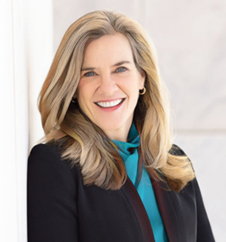The Supreme Court’s latest religion case offers opportunity to restore statute’s meaning
BJC joined an amicus brief signed by a broad coalition of religious entities in the Groff v. DeJoy case.

Religious litigants have been on an unprecedented winning streak recently at the U.S. Supreme Court. That trend is likely to continue in Groff v. DeJoy, a case brought by a part-time mail carrier in rural Pennsylvania who lost his job for failing to work on his Sabbath after the U.S. Postal Service began Sunday deliveries for Amazon.
In addition to demonstrating this Court’s continuing interest in religion cases, the case seems likely to generate more conversations about religion in general. The plaintiff in the case is a Christian, and the idea of Sabbath is deeply ingrained in various religious teachings and history. Adherence to an absolute prohibition on work on the Sabbath, however, is less common in many denominations. In a culture of capitalism that places great value on constant productivity, the case will likely spark debate about workers’ rights and demands for better work conditions in general. And, because of recent decisions in which the Court abandoned settled precedents and ignored principles that have long guided religious liberty law, many will view the case with skepticism.
This case presents simpler questions that should be less divisive. It involves the interpretation of a provision of Title VII of the Civil Rights Act of 1964, the federal statute that is the centerpiece of our country’s federal civil rights laws. It prohibits discrimination in employment based on a variety of protected categories, such as race, sex and religion.
In 1972, the statute was amended to define “religion” broadly and required employers to accommodate employees’ religious observances and practices unless doing so would result in “undue hardship on the conduct of the employer’s business.” The legislative record indicates that this provision was enacted with the concerns of religious minorities in mind, specifically including those whose Sabbath is Saturday.
The statutory language was designed to balance the religious needs of the employee and the business needs of the employer with expectations of resolving a conflict in a way that protects against religious discrimination in the workplace. The law lost much of its force, however, in the 1977 Trans World Airlines, Inc. v. Hardison decision, when the Supreme Court said that an employer suffers an “undue hardship” whenever an accommodation would require “more than a de minimis cost.” In other words, the employer had little obligation to make an adjustment for an employee (or prospective employee) whose religious practice conflicted with some aspect of the employer’s business.
In his dissent in Hardison, Justice Thurgood Marshall said the Court’s interpretation “made a mockery of the statute.” BJC supported Justice Marshall’s view of Hardison then and now. We supported several legislative efforts to restore a stronger standard including the Workplace Religious Freedom Act that would have amended the law to define “undue hardship” as “significant cost or difficulty.” Despite numerous opportunities, neither the Court nor Congress have corrected Hardison’s misinterpretation of Title VII.
In the Groff case, the Court finally has this chance. The Court will address two questions: 1) whether the “de minimis” standard for refusing religious accommodations should be disapproved; and 2) whether an employer may demonstrate “undue hardship on the conduct of the employer’s business” under Title VII merely by showing that the requested accommodation burdens the employee’s co-workers rather than the business itself.
For us, the answers are: 1) yes; and 2) no. Both questions offer an opportunity not only to clarify the statute’s meaning and its purpose of prohibiting discrimination in the workplace but also to explain the nature of respecting religious differences. The “reasonable accommodation” provision in the federal statute recognizes that avoiding discrimination based on religion may involve more than simply saying that all qualified employees are welcome without regard to religion. Religion affects the lives of individuals and faith communities in specific ways. Providing a workplace that is free of religious discrimination requires consideration of how some religious observances conflict with general work rules and business operations.
Lower courts decided the Groff case in favor of the employer on a factual record that showed some effort to accommodate Groff and some impact on fellow employees who worked additional shifts to cover the workload. But the decision gives insufficient weight to the statutory requirement to accommodate religion, and it improperly assumes that an impact on other employees (even a minor one) creates an undue hardship under the statute. That’s why BJC joined an amicus brief signed by a broad coalition of religious entities in favor of Groff. Congress got the balance right, and the Court should restore it.
Holly Hollman is general counsel and associate executive director of BJC.
This article first appeared in the spring 2023 edition of Report from the Capital. You can download it as a PDF or read a digital flip-through edition.




